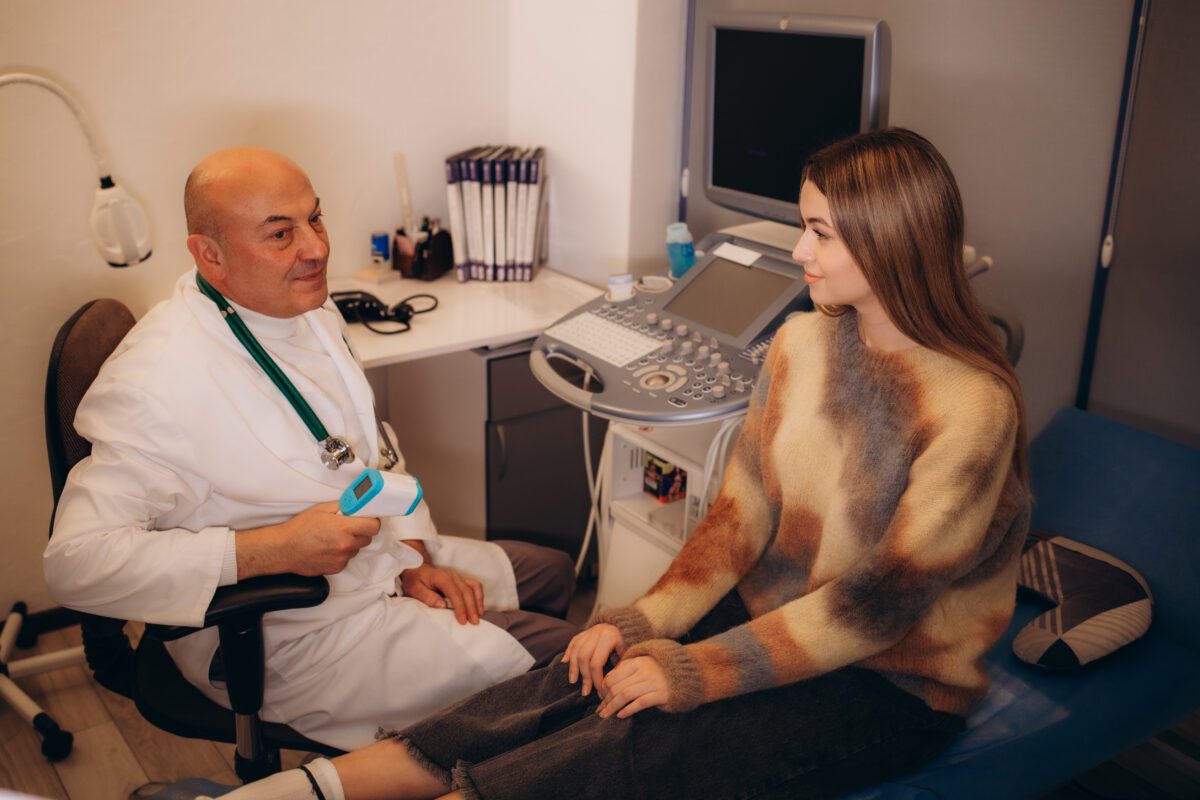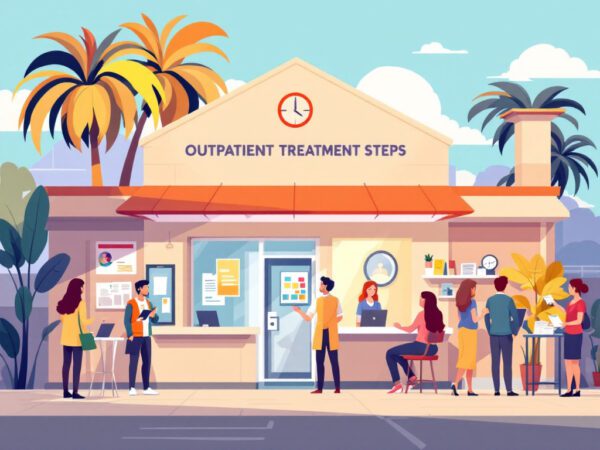Optum Insurance and Dual Diagnosis Treatment
Importance of Dual Diagnosis Treatment
Understanding dual diagnosis is essential for effective treatment. Many individuals struggling with substance use disorders also face mental health challenges. For example, research indicates that approximately 50% of people with a substance use disorder will also experience a mental health disorder, highlighting the need for integrated treatment solutions [1].
This co-occurrence is particularly prevalent among teenagers and individuals with serious mental illnesses. It’s crucial that those affected receive comprehensive treatment addressing both conditions simultaneously. Optum Health provides coverage for these integrated approaches, allowing you to access dual diagnosis treatment where you need it most.
Dual Diagnosis Stats and Facts
Understanding the statistics surrounding dual diagnosis can reinforce the importance of effective treatment strategies. Here are some key facts:
| Statistic | Data |
|---|---|
| Adults with Co-occurring Disorders | 7.7 million people in the U.S. |
| Adults with Mental Health Disorder and Substance Use | 37.9% of individuals with substance use disorder |
| Mental Health Disorders | 17 million U.S. adults had a co-occurring mental health disorder and substance use disorder in 2020 |
Optum Health’s coverage ensures you have access to necessary services that treat both substance use disorders and mental health issues. The Affordable Care Act supports this by mandating insurance coverage for mental health treatment as a crucial health benefit, ensuring that you can seek help without financial barriers [2].
If you or a loved one needs treatment for addiction, consider opting for Optum alcohol detox near me or explore other treatment options that accept Optum insurance.
Dual Diagnosis Treatment Approaches
When considering the right path to recovery, especially with a dual diagnosis, it is crucial to understand the various treatment options available. Here are some key approaches to dual diagnosis treatment that you may encounter.
Behavioral Therapy
Behavioral therapy is an essential component in addressing co-occurring mental health and substance use disorders. This form of therapy focuses on changing harmful behaviors and developing healthier coping strategies. Cognitive Behavioral Therapy (CBT) is particularly effective, helping individuals challenge negative thought patterns and improve their responses to stress [3].
| Therapy Type | Focus Area | Expected Outcomes |
|---|---|---|
| CBT | Negative thoughts and behaviors | Improved coping skills |
| Dialectical Behavior Therapy | Emotional regulation | Enhanced emotional stability |
| Motivational Interviewing | Ambivalence towards change | Increased motivation for recovery |
Medication Support
Medication can play a pivotal role in alleviating the symptoms associated with mental health conditions and substance use disorders. The dual approach of combining medication with therapy enhances overall treatment effectiveness. Medications may include antidepressants, anti-anxiety drugs, or medications specifically designed to manage withdrawal symptoms. These options should always be discussed with a healthcare provider to ensure they align with your specific needs.
| Medication Type | Purpose | Examples |
|---|---|---|
| Antidepressants | Improve mood | SSRIs like Sertraline |
| Anti-anxiety | Reduce anxiety symptoms | Benzodiazepines like Lorazepam |
| Withdrawal management | Relieve withdrawal symptoms | Buprenorphine for opioids |
Support Groups
Support groups offer essential emotional and social support for individuals navigating dual diagnosis challenges. They provide a platform to share experiences, connect with others facing similar struggles, and learn coping strategies. Participation in groups can foster a sense of community, belonging, and accountability. Many facilities hosting dual diagnosis treatment programs also facilitate these support groups.
| Support Group Type | Focus Area | Frequency |
|---|---|---|
| 12-Step Programs | Recovery support | Weekly meetings |
| Peer Support Groups | Sharing experiences | Varies by group |
In-Patient Care
In-patient care is often recommended for individuals with severe cases of dual diagnosis, especially those who benefit from structured environments. Specialized treatment centers provide intensive support and monitoring, crucial for those withdrawing from substances or dealing with severe mental health crises. This level of care ensures comprehensive management of both disorders simultaneously.
| Program Type | Services Offered | Ideal Candidates |
|---|---|---|
| Residential Treatment | 24/7 support, medical supervision | Severe dual diagnosis |
| Partial Hospitalization Programs (PHP) | Day treatment with evening freedom | Moderate dual diagnosis |
Exploring these treatment options can help you or your loved one decide the best course of action for recovery. If you’re interested in finding resources, consider facilities that accept Optum insurance for more accessible options.
Optum Insurance Coverage and Benefits
Understanding the coverage and benefits provided through Optum insurance is essential when considering drug and alcohol treatment options. Optum offers a comprehensive array of services, focusing on providing effective care for individuals facing addiction and mental health challenges.
The Recovery Village Services
The Recovery Village is a leading provider of drug and alcohol rehabilitation services and is in-network with Optum in Ohio. This means you can access a full continuum of care for addiction treatment, which can be partially or fully covered by your Optum plan. The services provided include:
- Medical detoxification
- Inpatient treatment programs
- Outpatient therapy sessions
- Partial hospitalization programs (PHPs)
- Support groups and aftercare planning
Starting January 1, 2024, certain services, including drug rehabilitation, will require prior authorization for participating behavioral health providers under UnitedHealthcare Exchange Plans in Ohio. This approach ensures that you receive systematic and regulated care throughout your recovery journey [4].
Coverage Inclusions
Optum’s insurance coverage encompasses a broad range of treatment options designed to meet the diverse needs of individuals battling addiction. The key inclusions under an Optum plan typically involve:
| Coverage Type | Description |
|---|---|
| Outpatient Programs | Access to outpatient clinical services and therapy. |
| Inpatient Services | Comprehensive care for individuals requiring intensive support. |
| Detoxification Services | Medical detox programs for safe withdrawal from substances. |
| Therapy Services | Including individual, group, and family therapy options. |
| Medication-Assisted Treatment | Support using FDA-approved medications to ease withdrawal and cravings. |
| Aftercare Planning | Guidance for ongoing support and recovery maintenance. |
Optum aims to deliver innovative care practices and high-quality, cost-effective treatment. They also focus on member experience and health outcomes, utilizing their Health Care Performance Analytics™ to measure the success of their rehab programs. This emphasis on performance is crucial for ensuring that you receive the best support possible throughout your recovery [4].
For anyone interested in accessing drug and alcohol rehab services in Ohio, it is essential to understand what Optum covers to make informed decisions regarding treatment. Whether you are seeking optum alcohol detox near me or considering residential programs, you can rest assured that Optum will support you in your recovery journey.
Optum Insurance Programs in Ohio
Choosing the right addiction treatment program is essential for effective recovery, especially for those utilizing Optum insurance in Ohio. The state offers various programs and services that cater to individuals’ needs, ensuring that you or your loved one receives the support necessary for lasting recovery.
Full Continuum of Care
Ohio residents with Optum benefits can access a comprehensive range of addiction treatment services, including medical detox, inpatient care, residential programs, outpatient services, and aftercare planning. This full continuum of care is designed to meet the diverse needs of individuals battling substance use disorders. Services may be partially or fully covered by Optum plans, alleviating the financial burden associated with treatment [4].
| Service Type | Description |
|---|---|
| Medical Detox | Supervised detoxification process essential for safety. |
| Inpatient Care | 24/7 support in a residential setting for intensive treatment. |
| Residential Programs | Long-term recovery focusing on lifestyle changes and therapy. |
| Outpatient Services | Flexible treatment while allowing individuals to maintain daily activities. |
| Aftercare Planning | Ongoing support post-treatment to prevent relapse. |
Prior Authorization
Starting January 1, 2024, certain services, including drug rehabilitation, will require prior authorization for participating behavioral health providers under UnitedHealthcare Exchange Plans in Ohio. This measure aims to ensure a regulated and systematic approach to addiction treatment. Obtaining prior authorization helps confirm that treatment is suitable and necessary, allowing for an organized care plan tailored to individual needs [4].
Rehabilitation Facilities Overview
Optum partners with in-network providers in Ohio, such as the Ohio Addiction Recovery Center, ensuring access to quality care across various service types. Their rehab facilities are equipped to support stabilization and sustainable recovery paths, integrating evidence-based care and compassionate support. Here are some facility features:
| Facility Feature | Description |
|---|---|
| Evidence-Based Care | Treatment methods grounded in scientific research. |
| Compassionate Team Support | A dedicated team to guide clients through recovery. |
| Peer Assistance | Incorporation of peer support for shared experiences. |
| Comfortable Environment | Facilities designed to be welcoming and supportive. |
Optum’s commitment to effective care in Ohio is highlighted by their comprehensive programming and support systems, which are crucial for anyone seeking sustained recovery. For more information on available services, visit the pages dedicated to optum alcohol detox near me or drug rehab optum in-network california.
Optum’s Impact on Addiction Treatment
Services Evaluation
Optum plays a significant role in the effectiveness of addiction treatment by utilizing a comprehensive evaluation system. They measure the success of their rehabilitation programs through various means, including quality analytics, member experience performance, and adherence to CMS statutory requirements. This thorough evaluation helps to maintain high Star Ratings, ensuring that the services provided meet industry standards.
Optum’s Health Care Performance Analytics™ offers predictive insights aimed at improving member health outcomes, which is crucial for assessing the effectiveness of their rehab services. By focusing on evidence-based care, Optum helps individuals navigate their recovery journeys with tailored approaches that meet their unique needs.
| Evaluation Method | Purpose |
|---|---|
| Quality Analytics | Measures success and service quality |
| Member Experience Performance | Assesses patient satisfaction |
| Adherence to CMS Requirements | Ensures regulatory compliance |
| Health Care Performance Analytics | Provides predictive insights to enhance outcomes |
For more information on addiction treatment that accepts Optum insurance, check out our related articles such as outpatient rehab optum in-network california and drug rehab optum in-network california.
Predictive Insights
Optum’s commitment to integrating evidence-based care is bolstered by their use of predictive insights in addiction treatment. By analyzing data on previous treatment outcomes and member experiences, they can better predict which interventions will lead to successful recovery paths for individuals dealing with substance use disorders.
These predictive insights allow them to design rehab services that cater to various stages and needs of recovery. Their focus on comprehensive support, including medical detox, inpatient care, and outpatient services, is complemented by amenities that create a comfortable and supportive environment for healing [4].
Such insights contribute to sustainable recovery paths, ensuring that treatments are continually optimized based on real-world effectiveness. For additional reading, consider exploring alcohol detox optum accepted los angeles or telehealth addiction treatment optum ca, both of which elaborate on how Optum’s services can be accessed for various treatment modalities.
Red Rock Recovery Center Services
Red Rock Recovery Center offers a variety of services designed to support individuals in their recovery journey, particularly those seeking dual diagnosis treatment through an Optum provider. Their programs include Medication-Assisted Treatment (MAT), inpatient treatment programs, and partial hospitalization programs (PHPs). Each of these options is tailored to provide comprehensive care for substance use disorders.
Medication-Assisted Treatment (MAT)
Medication-Assisted Treatment (MAT) is a cornerstone of Red Rock Recovery Center’s offerings. This approach is especially beneficial for individuals recovering from heroin and opiate addictions. MAT combines medication with counseling and behavioral therapies, facilitating a supervised environment where individuals can manage withdrawal symptoms effectively. This comprehensive support plays a pivotal role in increasing the chances of long-term recovery [5].
| Medication Type | Purpose |
|---|---|
| Methadone | Reduces cravings and withdrawal symptoms for opiate dependency. |
| Buprenorphine | Limits the effects of opioids while alleviating cravings. |
| Naltrexone | Blocks the euphoric effects of opioids and prevents relapse. |
Choosing the right MAT program can significantly improve recovery outcomes. If you are looking for services in your area, consider opiate detox optum in-network la to locate facilities that support your recovery journey.
Inpatient Treatment Programs
Inpatient treatment programs at Red Rock Recovery Center typically last from 14 to 30 days, providing a structured environment essential for recovery. These programs focus on creating a safe space that allows individuals to engage deeply with various therapies, helping them heal from both addiction and co-occurring mental health disorders [5].
| Program Duration | Activities Included |
|---|---|
| 14 Days | Introduction to recovery, group therapy, individual counseling. |
| 30 Days | Extended therapies, life skills training, relapse prevention strategies. |
This intensive care model ensures that participants receive 24/7 support and supervision, which can significantly enhance their commitment to recovery. For more information, check out drug rehab optum in-network california.
Partial Hospitalization Programs (PHPs)
Partial hospitalization programs (PHPs) at Red Rock Recovery Center provide a structured transition from residential care to outpatient services. PHPs offer flexibility, allowing clients to engage in treatment during the day while returning home in the evening. This model serves as an in-between step that facilitates the adjustment to post-treatment life, providing essential support as individuals move toward independence [5].
| PHP Features | Benefits |
|---|---|
| Daily therapy sessions | Intensive care while allowing clients to maintain daily responsibilities. |
| Access to support groups | Continual peer support to encourage sharing experiences and solutions. |
| Flexibility in scheduling | Adjusts to individual needs while maintaining a strong recovery focus. |
These programs are ideal for those who have completed residential treatment but still require assistance and structure as they continue their recovery journey. For further insights, feel free to explore partial hospitalization optum accepted la for additional details on PHP offerings.
By choosing Red Rock Recovery Center’s services, you benefit from a well-rounded approach to recovery that is tailored to the unique challenges of dual diagnosis treatment.















